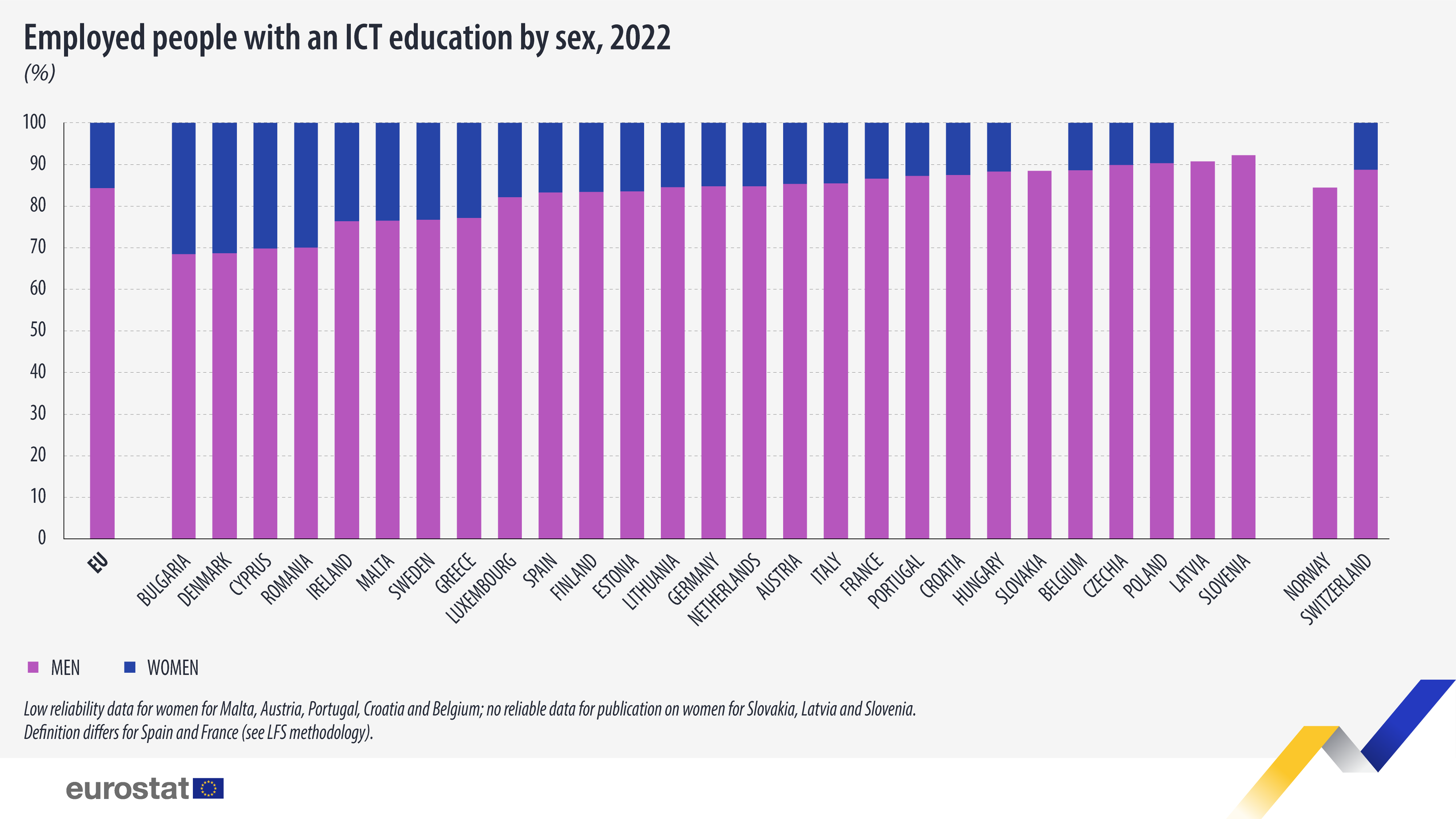Men represent as many as 84 % employees with an ICT education

In 2022, 3.0 million people with ICT education were employed in the EU, which is 6.7 % more than in 2021 (2.8 million). Men accounted for 84.4 % (2.5 million) of ICT-educated employees, which is 7.1 % more than the year before (2.4 million in 2021), while women represented 15.6 % (463,100) employees, which is 4.4 % more than in 2021 (443,400).
As for EU members, Slovenia (93.0 %), Latvia (91.0 %), Poland (90.3 %), the Czech Republic (89.9 %), Belgium (88.7 %) and Slovakia (88 .5 %) the largest share of men in the total number of employees with education in the field of ICT.
Regarding female employees with ICT education, the highest shares were recorded in Bulgaria (31.5 %), Denmark (31.3 %), Cyprus (30.2 %) and Romania (29.9 %).

Most employees with an ICT background are young
In the EU in 2022, more than two thirds (67.8 %) of employees with an ICT education were between 15 and 34 years old, and 32.2 % were between 35 and 74 years old.
Young people between the ages of 15 and 34 represent the majority of ICT-educated working people in almost all EU member states, with the largest share in Slovakia (83.8 %), Romania (82.4 %), Croatia (79.3 %), Mortar (78.4 %). ), Hungary, Poland (both 76.7 %) and Portugal (76.1 %).
The highest percentages of 35-74-year-olds with an ICT education in the EU were in Finland (47.4 %), Ireland (43.7 %) and Bulgaria (40.4 %).






























